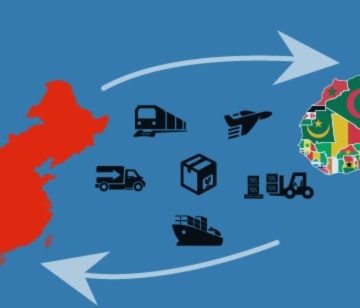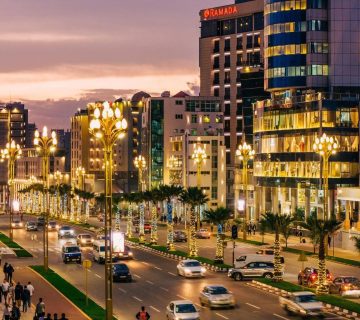The ongoing African Union (AU)-led trilateral talks between Ethiopia, Egypt, and Sudan over a nine-year dispute occasioned by Ethiopia’s construction and scheduled operationalization of the Grand Ethiopian Renaissance Dam (GERD) across the Blue Nile, occupy a definitive position in the dispute. In February 2020, there was diplomatic deadlock when Ethiopia shirked Washington and World Bank-led trilateral negotiation talks and stuck to its July 2020 schedule of the first filling of the dam, with or without an agreement to safeguard the risk concerns of Egypt and Sudan. On the other hand, Egypt had vowed not to allow Ethiopia to begin filling the dam without an agreement in place, with all options available and imaginable to both parties. Up to July this year, pressure had been mounting on both Egypt and Ethiopia to end the deadlock or unlock a military conflict.
However, the current talks opened another window of negotiations, with Ethiopia vacating its July 2020 filling schedule if an agreement will not have been concluded by such time. The concession by Ethiopia is significant in breaking the deadlock and allowing pressure-free negotiations to proceed in a less-intractable atmosphere. Secondly, both parties have committed to talks with a target of two to three weeks within which an agreement should be finalized, thereby allowing Ethiopia to begin filling the dam in two to three weeks (with an agreement). Thus, having broken the deadlock and brought the parties back to the negotiating table with clear timelines, at a high-risk level of escalation, the current talks stand a chance to fundamentally steer the dispute towards a peaceful resolution and a regional cooperative mechanism.
On the flip slide, a potential collapse will lead to a deeper escalation potentially into a military conflict. Such escalation will not only affect the main actors, Egypt, Ethiopia, and Sudan but also engulf the Horn of Africa region in a conflict likely to threaten regional security, peace, and stability, as well as the region’s geopolitics and balance of power. A military conflict will not only sabotage GERD’s operationalization, but would impose significant human, economic and political costs on both sides of the conflict which the two sides are realistically keen to avoid.
Sticking Points at this Stage
The ongoing talks have managed to move the primary parties significantly from hardline positions to interests, expanded the pie of options for them, and achieved mutual agreement on 90 per cent of the issues raised. Such issues range from economic, political, social, to the period of the filling of the GERD. However, the remaining 10 per cent hold the agreement from an amicable conclusion, and the conflict from peaceful resolution. The current sticking points are majorly technical and legal aspects. The first technical issue relates to the consideration for drought or dry years in filling the dam, which Ethiopia finds inconsistent with its rapid filling approach since it will slow the filling and stagnate the dam’s operational capacity. While in principle, Ethiopia has committed to guaranteeing Egypt’s water security, by among other safeguards, agreeing to an annual discharge enough to stabilize Egypt’s Aswan High Dam and to not adversely affect water supply in Egypt, there is a yawning want for technical guarantees.
The other issue relates to the safety of the dam. A significant environmental, social, and economic impact would be incurred if the dam proves weak to excessive flooding and geo-seismic activity. Sudan and Egypt are unconvinced by the scanty details availed by Ethiopia on the dam’s strength and capacity to withstand excessive flooding and other natural disasters. No general safeguards nor specific technical safeguards based on technical findings or rationale have been provided by Ethiopia. As such, an assurance in principle alone does not suffice. Lastly, the parties are yet to agree on the appropriate dispute resolution mechanism for future disputes regarding GERD and any development projects on the Blue Nile. The appropriate mechanism in this regard has to protect the “binding” nature of the final agreement and be able to “enforce” a determination in case of a dispute. While Egypt seems to prefer international jurisdictions by for instance inviting the United Nations Security Council (UNSC) to the matter, Ethiopia prefers continental dispute resolution mechanisms, while advocating for “African solutions to African problems”.
Way Forward
For Egypt and Ethiopia to abandon hardline positions and re-commit to settlement talks, a significant degree of flexibility has been demonstrated. Sudan on its part has exercised moderate restraint, not to exact its own extreme demands nor to tilt the equation of the dispute on one side. Similarly, the outstanding issues require an extra degree of flexibility for a compromise agreement.
In the meantime, the UNSC should limit its role to supporting the AU-led talks rather than appear to establish a parallel channel for dispute resolution before other mechanisms are exhausted. The UNSC further appears to infuse pressure on the parties, which might harden positions and undermine mutual confidence in the AU-talks, thereby frustrating concession-making for parties already facing domestic public pressure.
However, Ethiopia should commit to maintaining the prevailing GERD’s operational capacity as of when the dry years fall or any such compensatory arrangement to stabilize the downstream impact on Sudan, Aswan High Dam, and Egypt’s annual share. As regards dispute resolution mechanism, all the parties in the dispute should commit to peaceful dispute resolution, put premium on regional dispute resolution mechanisms, and provide for recourse to international jurisdiction as last resort.
That being as it may, Ethiopia should exercise transparency and openness, by willingly sharing GERD’s safety information, or jointly with Egypt and Sudan, elect an independent technical evaluation going forward. Further, Egypt, Sudan, and Ethiopia, under the auspices of the African Union, should establish a permanent technical joint committee for verification, evaluation, and monitoring of the implementation of the final agreement and GERD. The committee may establish sub-committees in the fashion of Lake Chad Basin Commission, for confidence building, and technical evaluation and verification of the dam’s safety, impact on downstream countries, and the hydrological impact of GERD over time.
Edmond J. Pamba is an independent researcher focusing on international security, terrorism and counter-terrorism
Photo: Ethiopia’s Grand Renaissance Dam under construction (Photo Credit: Quartz Africa)



